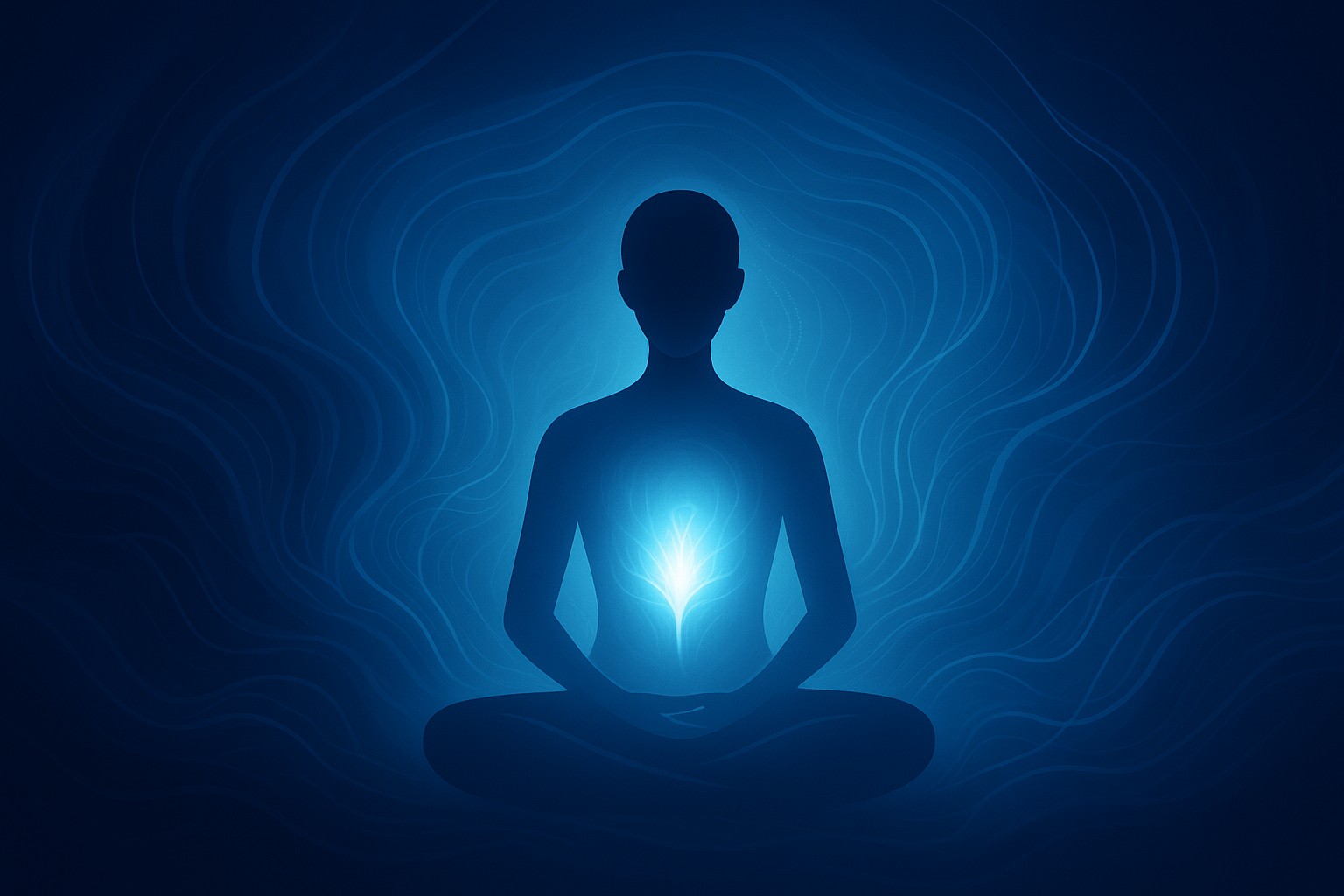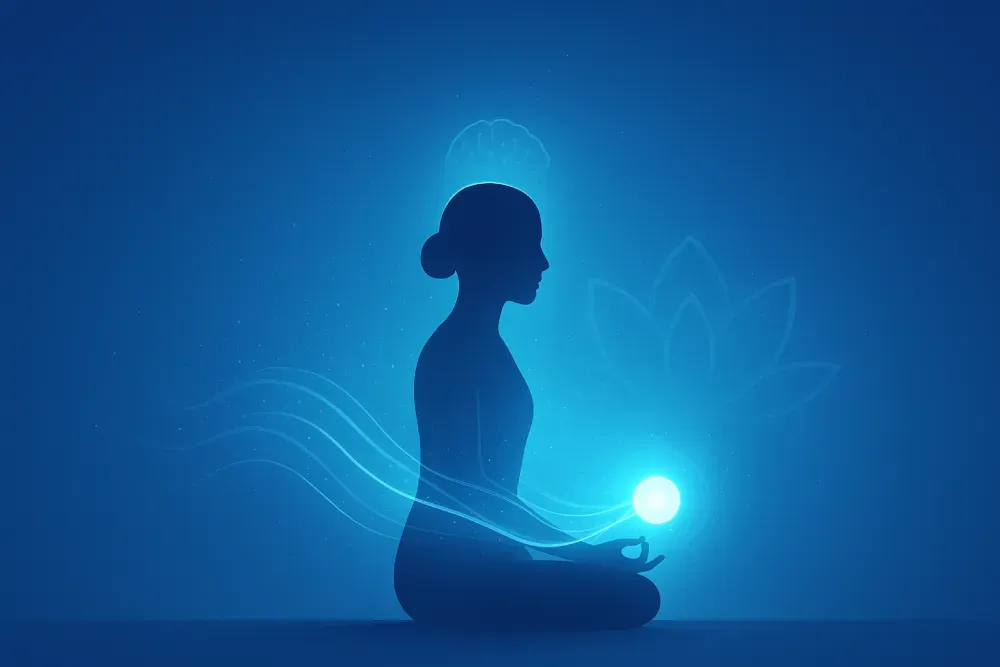Everyone talks about the numerous benefits of mindfulness and meditation, and with AI, well-being is now more accessible than ever before. But, are these two terms interchangeable, like they so often seem to be, or is there a difference?
For someone who is just starting out on their meditation journey or trying to be more mindful throughout their day, these terms can be confusing.
Let’s break down the differences between the two and explain how AI plays a role in supporting both.
Understanding the Basics
The core difference between the two is that mindfulness is a quality, whereas meditation is a practice. Here’s a deeper dive into what this means:
What is Mindfulness?
Mindfulness is the act of being fully present and aware in the moment. It involves being focused on the task or experience one is currently experiencing, rather than having multiple mental tabs open.
For example:
• Listening attentively in a conversation
• Being aware of how good the food you are eating is for your mind and body
• Reading a book without your mind wandering off
Being mindful means being very aware of the present moment - it doesn’t always happen naturally. Distractions surround us; we are constantly multitasking, and this routine has made it difficult for us to focus on one thing with our mind and body.
Mindfulness breaks this cycle - it makes us slow down and be grounded. It is a quality that has to be developed over time with active effort, consistency, and patience till it becomes a habit.
What is Meditation?
Meditation is a practice, almost like a mental exercise, which uses techniques to train attention and awareness; by discouraging discursive thinking, meditation promotes a mentally clear and emotionally stable state.
For example:
• Focused breathing: feel the air enter and leave your nose.
• Guided visualization: imagine you are relaxing at the beach, feel the waves wash over you, the breeze in your hair.
• Body scans: mentally scan your body from head to toe, noticing any tightness or tension without judgment.
Meditating usually requires individuals to book a time slot to practice it. With AI meditation apps, such as Sacredspace.ai, users can now experience personalized sessions at any time of the day, even if just for ten minutes.
Relationship Between the Two
Mindfulness and meditation are not competing in nature - they are complementary.
As we learned earlier, mindfulness is a way of life, an ongoing awareness of the present moment, while meditation is one of the tools that can sharpen this quality.
Meditation is a formal practice used to enhance mental capacities, such as concentration or compassion. Mindfulness is one of the many techniques used to meditate. While mindfulness meditation is popular, there are several other meditation styles, each designed to meet different goals and outcomes.
How AI Tools Support Both Practices
Mindfulness is a personal quality, cultivated at an individual’s own pace and shaped by their specific environment. Meditation, likewise, is a formal practice that can be tailored to meet each person’s unique needs and circumstances.
Personalization is a common factor here. It is important to make the experiences effective for users because the days of generalized playlists and static soundscapes are long behind us.
The role of AI in meditation and mindfulness apps is to use advanced technologies like machine learning and biometric data processing to create elevated, personalized experiences for meditation and make mindfulness easy to develop for beginner or advanced-level users. Let’s see how AI apps work to support both:
AI-Powered Mindfulness Apps
These apps, and related wearables, are designed to help users lead more mindful lives. Some of their features include:
Real-time reminders to pause, breathe, or check in with emotions
Sentiment analysis using natural language to detect stress levels
Micro-mindfulness moments, such as 30-second audio cues to reset attention
These tools are ideal for integrating mindfulness into busy routines without needing to carve out extra time.
AI-Guided Meditation Tools
These apps offer highly personalized meditation sessions for users by analyzing several data points such as heartbeat, mood, and voice tone, among others. Some common features include:
• Custom meditation pathways based on user history or mood tracking
• Voice- or video-guided sessions tailored to different goals (e.g., sleep, anxiety, focus)
• Progress tracking with adaptive recommendations for consistency and growth
These apps help users understand their needs and track their progress over time as well. They can also make use of AI-generated summaries, highlights, and reports to understand how meditation has helped them, or how they can make it for effective.
Choosing between Meditation and Mindfulness Apps: The Right Choice for You
Let’s recap the major differences between mediation and mindfulness with the following table:
Mindfulness and meditation, though often linked, involve fundamentally different modes of mental engagement. Mindfulness is a sustained attitude of awareness, an open, non-judgmental attention to the present moment. It requires no special setting and can be practiced during routine activities like walking or eating. Its purpose is observational: to notice thoughts and sensations without trying to alter them. The result is greater emotional regulation and moment-to-moment awareness.
Meditation, in contrast, is a deliberate and structured practice. It occurs in dedicated time blocks, separate from daily tasks. The goal is not just observation but transformation, cultivating focus, clarity, and reduced emotional reactivity. Where mindfulness supports passive awareness, meditation actively reshapes mental habits.
In cognitive terms, mindfulness is diffuse and continuous, while meditation is focused and intentional. One supports presence; the other builds precision. Both are valuable, but serve different psychological functions.
So which one is the right choice for you? The answer depends on what your personal needs are. Features of AI-driven meditation and mindfulness apps can help you decide this, as you figure out what is helpful for you.
When to Use Mindfulness Tools
Mindfulness-based tools are most useful when:
• You’re constantly multitasking, or overburdened with work need to stay grounded
• You experience emotional overwhelm and want to quickly recenter yourself.
• You want to improve self-awareness during everyday actions
AI apps that encourage present-moment check-ins can help you slow down and take a moment to recalibrate without allocating extra time for this.
When to Use Meditation Tools
Meditation-focused tools work best when:
• You want to reduce stress and anxiety in the long run
• You’re looking to improve sleep or manage burnout
• You prefer structured guidance and progress tracking
If you relate to these cases, then AI-powered meditation apps such as Sacredspace.ai offer personalization and the consistency needed to achieve mental clarity and inner peace.
Final Thoughts: Get the Right Balance with AI Support
Understanding the difference between mindfulness and meditation is important to understand which is more suitable for you. Only then you can make the most of AI-powered wellness apps and tools. Mindfulness helps us stay present in the moment, while meditation builds the mental strength to do so consistently over time.
AI tools are not here to replace these practices or to do the work for you. They refine and support meditation and mindfulness so it is easier for users to practice them. Whether you are pausing for a breath or sitting down for a guided session, the right AI-driven application can make both mindfulness and meditation more accessible, more effective, and more integrated into our daily lives.




